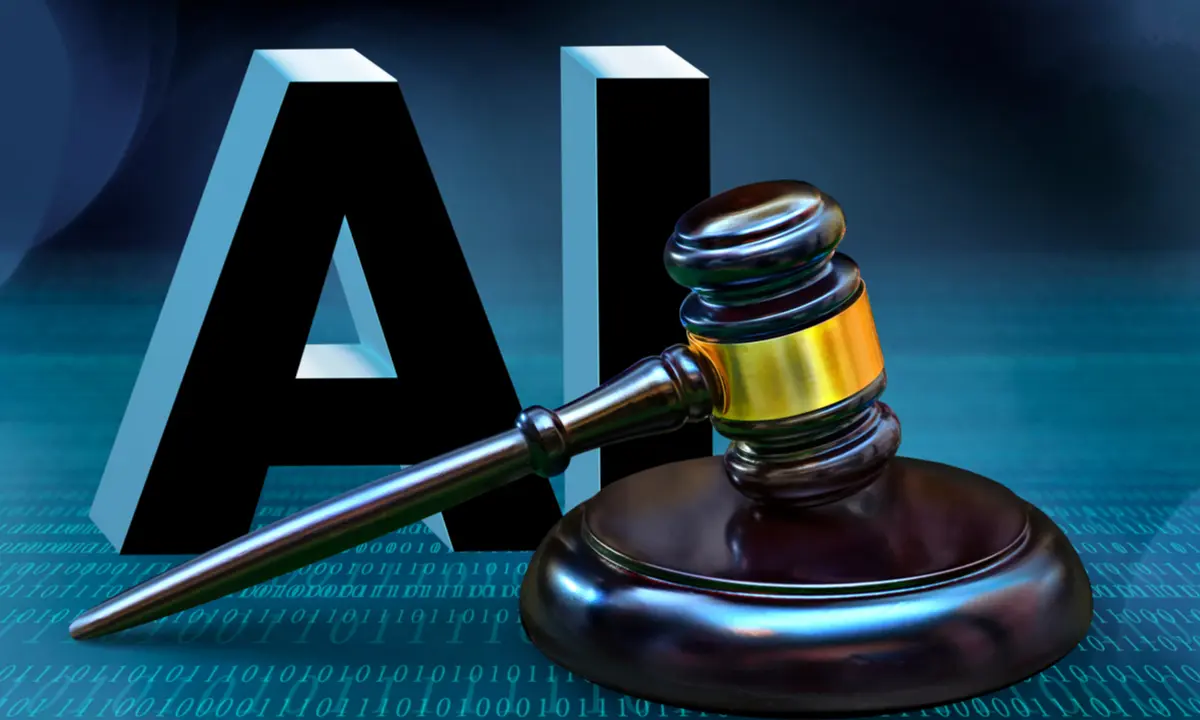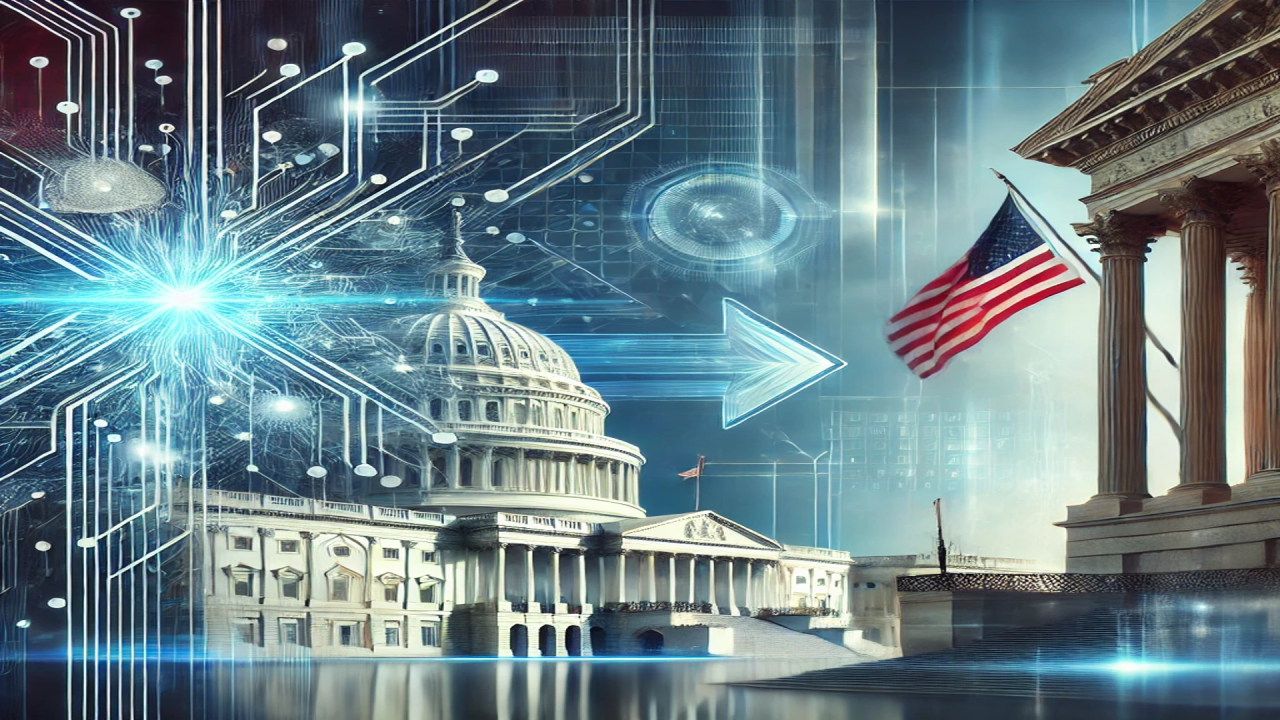New AI regulations could reshape the tech industry, influencing innovation, investment, and compliance strategies

March 1, 2025
The U.S. government is taking significant steps toward regulating artificial intelligence (AI), marking a new era in the tech industry. With AI's rapid growth and widespread adoption across various sectors, policymakers are seeking to establish guidelines that promote responsible innovation while addressing concerns about security, privacy, and ethical use. As regulations take shape, investors, tech companies, and startups are evaluating how these changes will impact AI-driven businesses and future investments.
The Need for AI RegulationsAI has transformed industries ranging from healthcare and finance to manufacturing and defense. However, concerns about data privacy, algorithmic bias, intellectual property, and potential job displacement have prompted lawmakers to consider stricter oversight. The federal government aims to introduce a framework that ensures AI development aligns with national interests, ethical principles, and global competitiveness.
Key reasons driving AI regulations include:
The proposed AI regulations are expected to focus on several critical areas:
Regulations will have a profound impact on the AI investment landscape, creating both opportunities and challenges for tech companies and venture capitalists.
1. Increased Compliance Costs for AI Startups
Startups that rely on AI for their business models may face higher costs due to compliance with government regulations. This could limit the ability of smaller companies to compete with tech giants that have the resources to meet regulatory requirements.
2. Shift in Investment Strategies
Investors may prioritize funding AI companies that align with ethical AI development and regulatory compliance. Venture capital firms could shift their focus to businesses that emphasize transparency, accountability, and security in AI systems.
3. Slower Innovation in High-Risk AI Sectors
Tighter regulations may slow down advancements in high-risk AI fields, such as autonomous weapons, predictive policing, and deepfake technology. While this could reduce potential risks, it might also hinder breakthrough innovations.
4. Growth in AI Compliance and Security Solutions
The regulatory push will likely create a booming market for AI governance, risk management, and compliance solutions. Companies offering AI auditing tools, ethical AI frameworks, and security-focused AI technologies could see significant growth.
5. Global Competitive Implications
As the U.S. implements AI regulations, other countries may adopt similar or competing policies. Nations with more lenient regulations could attract AI investments, while companies in highly regulated regions might face challenges in global expansion.
Tech Industry’s Response to AI RegulationsMajor tech firms and AI startups have expressed mixed reactions to the proposed regulations. While some companies welcome the clarity that regulations provide, others fear that excessive oversight could stifle innovation.
The Biden administration and Congress are working on finalizing AI regulatory policies, with bipartisan discussions shaping the framework. Over the next year, businesses should expect additional guidance, compliance deadlines, and potential tax incentives for ethical AI development.

New AI Investment Guidelines: Impact on Tech Investors
The U.S. has introduced new guidelines for AI investments, aiming to address security concerns and market dynamics. Here's how the new rules will affect tech investors

Biden Administration Unveils New AI Investment Regulations
The Biden administration has unveiled new regulations aimed at overseeing AI investments to ensure national security, ethical development, and responsible growth in the tech sector

The US tightens AI investment regulations to curb foreign influence and strengthen national security
The US government has introduced stricter AI investment restrictions to prevent foreign influence in critical AI sectors. The new regulations aim to protect national security, enhance compliance measures, and promote domestic AI innovation. These changes will impact AI startups, investors, and international partnerships.

US to Restrict Foreign AI Investments
The U.S. government is exploring new policies to limit foreign investments in artificial intelligence (AI) technologies to safeguard national security and maintain technological leadership

US AI Investment Rules Shake Global Markets
The U.S. government’s new regulations to limit foreign investments in AI technologies could disrupt global markets, reshaping investment flows, innovation, and competition

Economic Impact of US AI Investment Policy Changes
The U.S. government’s shift in policy to restrict foreign investments in AI technologies could disrupt both the U.S. economy and the global market, influencing technological progress and global competition

How U.S. Policies Are Shaping the Future of AI Investments
The U.S. government is introducing new investment policies to regulate AI growth, ensuring national security, ethical development, and responsible innovation

How the US is Regulating AI Investments for Security & Growth
The US government has unveiled new measures to regulate AI funding, focusing on national security, ethical AI development, and strategic investment control

New regulations are reshaping AI investments, funding, and growth
New investment laws are set to reshape the AI industry, affecting funding, foreign investments, and innovation. Learn how these regulations impact AI growth
The Atlantic Daily
Get our guide to the day’s biggest news and ideas, delivered to your inbox every weekday and Sunday mornings. See more newsletters
.webp)
Ideas That Matter
Subscribe and support more than 160 years of independent journalism.
Subscribe